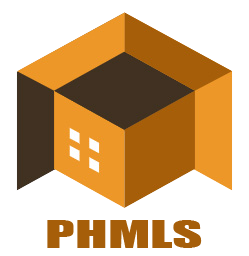Pros and Cons of Buying a House vs. Renting a House

Pros and Cons of Buying a House vs. Renting a House
When it comes to choosing between buying a house and renting, the decision can be complex and highly personal. Each option has its own set of advantages and disadvantages, and understanding these can help you make an informed decision. Here’s a detailed look at the pros and cons of both.
Buying a House
**Pros:**
1. Equity Building: Over time, you build equity in your home, which can be a significant financial asset.
2. Stability: Owning a home offers long-term stability. You won’t have to worry about rent increases or being asked to move by a landlord.
3. Customization: Homeowners have the freedom to modify and renovate their property to fit their tastes and needs.
4. Tax Benefits: Mortgage interest and property taxes can often be deducted from your income taxes.
5. Investment Opportunity: Real estate can appreciate in value, potentially offering a good return on investment over time.
**Cons:**
1. High Upfront Costs: Buying a home requires a substantial down payment, closing costs, and other fees.
2. Maintenance Responsibilities: Homeowners are responsible for all maintenance and repairs, which can be costly and time-consuming.
3. Market Risk: The value of your home can fluctuate with the real estate market, which could lead to financial loss.
4. Less Flexibility: Selling a home and moving can be a lengthy and complicated process, making it less flexible if you need to relocate quickly.
5. Monthly Expenses: Mortgage payments can sometimes be higher than rent, especially when factoring in property taxes, insurance, and maintenance.
Renting a House
**Pros:**
1. Flexibility: Renting allows for greater flexibility to move, which is ideal for those who might need to relocate frequently for work or personal reasons.
2. Lower Initial Costs: Renters typically need only a security deposit and the first month’s rent upfront, making it more affordable initially.
3. No Maintenance Worries: Landlords are generally responsible for maintenance and repairs, saving tenants time and money.
4. Predictable Expenses: Rent payments are usually fixed for the duration of the lease, making it easier to budget.
5. Access to Amenities: Many rental properties offer access to amenities like pools, gyms, and common areas, which might be expensive to install and maintain in a home.
**Cons:**
1. No Equity: Renters do not build equity or gain any return on their rental payments.
2. Rent Increases: Rent can increase with each lease renewal, making long-term budgeting more difficult.
3. Limited Customization: Renters often have restrictions on making changes or upgrades to their living space.
4. Instability: There is a risk of eviction or the property being sold, requiring renters to move unexpectedly.
5. No Tax Benefits: Renters do not receive the same tax benefits as homeowners, such as mortgage interest deductions.
Conclusion
Choosing between buying and renting a home depends on various factors including your financial situation, lifestyle, and long-term goals. Consider the pros and cons carefully to make the decision that best fits your needs.
For more information and personalized guidance, contact Samuel O Lao, an Associate, at 09173236123.
#BuyingVsRenting #RealEstateDecisions #HomeOwnership #RentingAdvantages #PropertyInvestment
Tags: buyingvsrenting RealEstateTips Homeownership rentingadvantage PropertyInvestment










